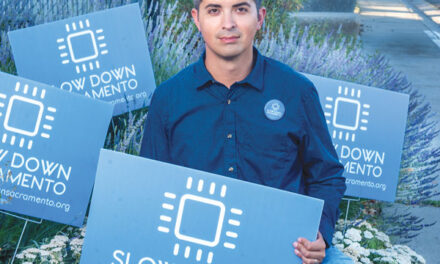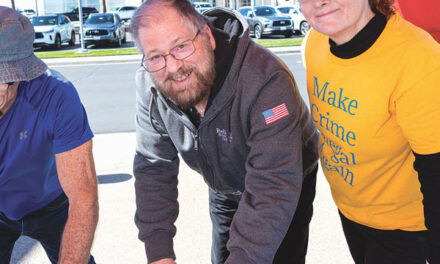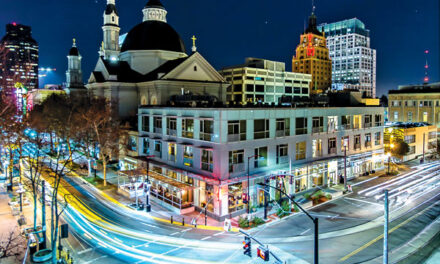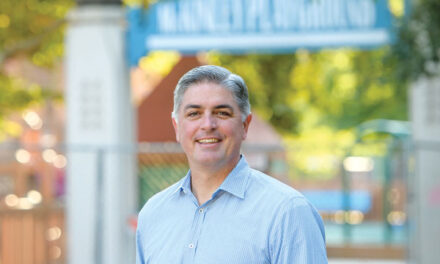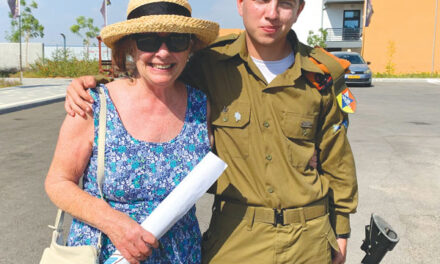Crossing the street in the Sacramento region can kill you.
Local traffic accidents killed 377 pedestrians from 2018 to 2022, ranking the capital 20th on Smart Growth America’s list of the most dangerous U.S. communities for people on foot.
Isaac Gonzalez is working to reduce those horrific numbers.
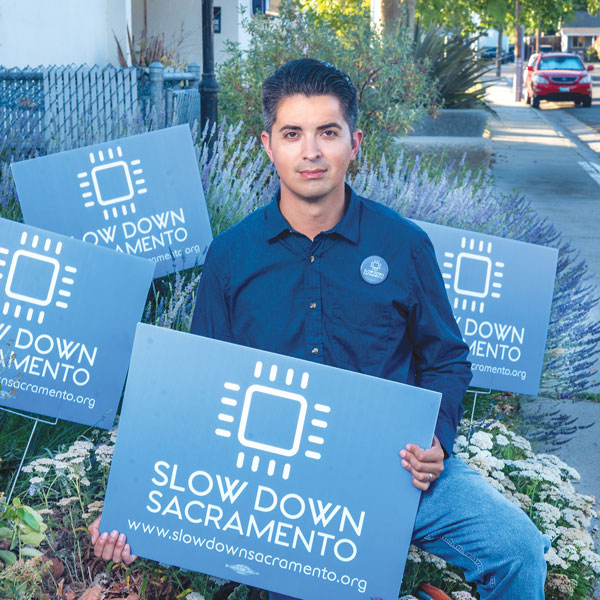
“The idea for an organization called Slow Down Sacramento first came to me in 2022. I was driving through Napa County when my GPS diverted me off the freeway onto a local street. There, I saw dozens of lawn signs that read ‘Slow Down Napa,’” says Gonzalez, a neighborhood association leader with a long history of making a difference.
“It was clear that the residents were frustrated with highway traffic being diverted through their residential corridor and had started a grassroots movement to address it.”
He learned Slow Down Napa is an active and accomplished organization. He decided to replicate the effort here. Slow Down Sacramento is a subsidiary of the Tahoe Park Neighborhood Association, where Gonzalez has served on the board for 13 years. He’s the current president.
Traffic safety isn’t just a neighborhood problem. The association expanded its goals and introduced Slow Down Sacramento.
“We officially launched Slow Down Sacramento in August 2023 with a press conference outside City Hall, about a week before the start of the new school year in the Sacramento City Unified School District,” Gonzalez says. “Our goal was to remind drivers to be considerate and drive safely around school campuses and children.”
He wanted to initiate a broader discussion about prioritizing people over speed in planning and policy processes, focusing on the importance of safe driving on residential streets.
Gonzalez had two main inspirations. “First, I have witnessed far too much carnage resulting from crashes involving drivers and vulnerable road users, such as pedestrians and cyclists, with seemingly little action taken in response. In the absence of organized community efforts, meaningful changes rarely occur,” he says.
He cites an example from 2011, when a young girl was killed on Fruitridge Road near West Campus High School. The community rallied and changes were made, including the installation of a stoplight at the deadly intersection.
More recently, the death of a parent at Phoebe Hearst Elementary while waiting to pick up her daughter prompted another community effort. Resources were allocated and a “road diet” traffic realignment program is underway.
“These instances demonstrate that without community advocacy, the status quo persists, and the cycle of tragedy continues,” Gonzalez says.
He was inspired by the Strong Towns movement, which advocates for quick, inexpensive changes to achieve radical improvements in street safety.
“Streets have two inherent values: They either serve as conveyances from one place to another or as spaces where people find value and want to be. Most streets in our city function merely as conveyances, with little consideration for the people who live, work or travel on them by foot or bicycle,” he says.
The movement promotes transforming streets into places where people want to gather and spend time. Lower vehicle speeds increase the benefits for people who live and work nearby.
“This approach not only enhances safety but also boosts economic outputs for our city coffers. It’s a win-win situation and a hallmark of great cities,” Gonzalez says.
The biggest challenge is overcoming car-centric planning and design and the entrenched belief that vehicles should dominate city streets. He says many policymakers and city staff still adhere to this outdated approach.
Resistance also comes from people who dislike road designs that might hold them to the speed limit.
Under the leadership of Gonzalez, the Tahoe Park association flourishes. “We have an incredibly strong board that focuses on enhancing the quality of life for our residents through various efforts. These include outreach with local developers and policymakers on key issues, organizing family-friendly events, such as monthly food truck gatherings and annual Halloween events, and raising significant funds for scholarships for high school seniors heading to college,” he says.
“People are extremely frustrated with the lack of urgency in addressing dangerous roads. We shouldn’t have to wait decades or hold countless meetings to make necessary changes.”
Visit slowdownsacramento.org for information and to purchase a yard sign for $15 or a logo T-shirt.
Cecily Hastings can be reached at publisher@insidepublications.com. Follow us on Facebook and on Instagram: @insidesacramento.


